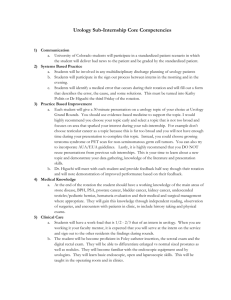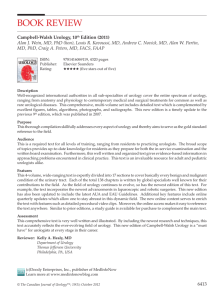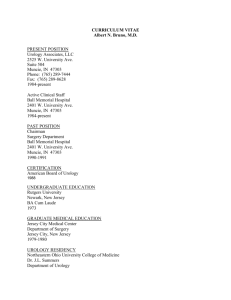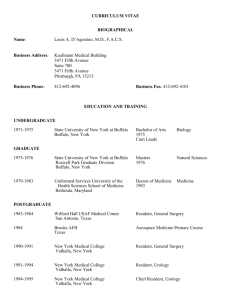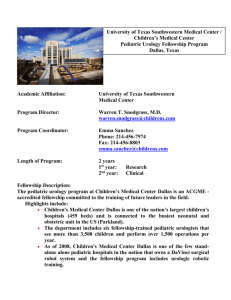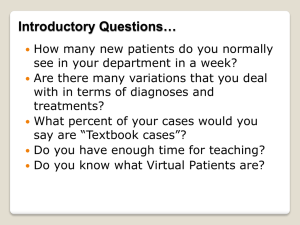UROLOGY TOPICS FOR MEDICAL STUDENT ROTATIONS
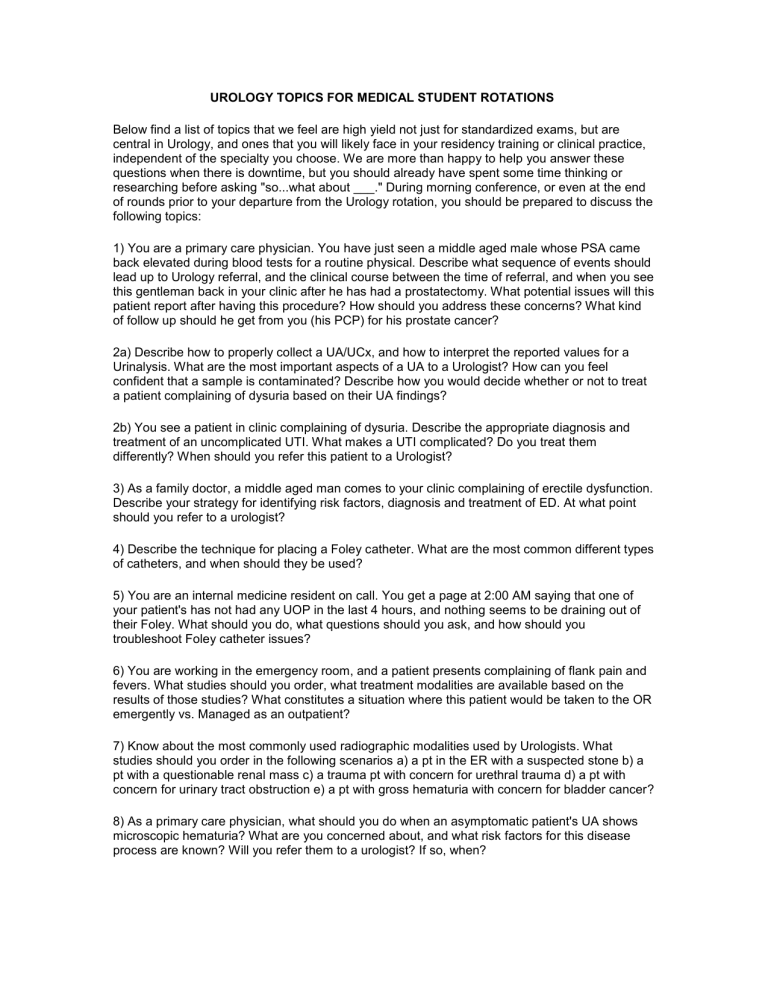
UROLOGY TOPICS FOR MEDICAL STUDENT ROTATIONS
Below find a list of topics that we feel are high yield not just for standardized exams, but are central in Urology, and ones that you will likely face in your residency training or clinical practice, independent of the specialty you choose. We are more than happy to help you answer these questions when there is downtime, but you should already have spent some time thinking or researching before asking "so...what about ___." During morning conference, or even at the end of rounds prior to your departure from the Urology rotation, you should be prepared to discuss the following topics:
1) You are a primary care physician. You have just seen a middle aged male whose PSA came back elevated during blood tests for a routine physical. Describe what sequence of events should lead up to Urology referral, and the clinical course between the time of referral, and when you see this gentleman back in your clinic after he has had a prostatectomy. What potential issues will this patient report after having this procedure? How should you address these concerns? What kind of follow up should he get from you (his PCP) for his prostate cancer?
2a) Describe how to properly collect a UA/UCx, and how to interpret the reported values for a
Urinalysis. What are the most important aspects of a UA to a Urologist? How can you feel confident that a sample is contaminated? Describe how you would decide whether or not to treat a patient complaining of dysuria based on their UA findings?
2b) You see a patient in clinic complaining of dysuria. Describe the appropriate diagnosis and treatment of an uncomplicated UTI. What makes a UTI complicated? Do you treat them differently? When should you refer this patient to a Urologist?
3) As a family doctor, a middle aged man comes to your clinic complaining of erectile dysfunction.
Describe your strategy for identifying risk factors, diagnosis and treatment of ED. At what point should you refer to a urologist?
4) Describe the technique for placing a Foley catheter. What are the most common different types of catheters, and when should they be used?
5) You are an internal medicine resident on call. You get a page at 2:00 AM saying that one of your patient's has not had any UOP in the last 4 hours, and nothing seems to be draining out of their Foley. What should you do, what questions should you ask, and how should you troubleshoot Foley catheter issues?
6) You are working in the emergency room, and a patient presents complaining of flank pain and fevers. What studies should you order, what treatment modalities are available based on the results of those studies? What constitutes a situation where this patient would be taken to the OR emergently vs. Managed as an outpatient?
7) Know about the most commonly used radiographic modalities used by Urologists. What studies should you order in the following scenarios a) a pt in the ER with a suspected stone b) a pt with a questionable renal mass c) a trauma pt with concern for urethral trauma d) a pt with concern for urinary tract obstruction e) a pt with gross hematuria with concern for bladder cancer?
8) As a primary care physician, what should you do when an asymptomatic patient's UA shows microscopic hematuria? What are you concerned about, and what risk factors for this disease process are known? Will you refer them to a urologist? If so, when?


